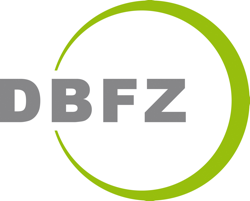Innovation partnership: Consortium researches biochemical conversion of municipal waste in Greater Paris area
The processing of municipal organic waste in conurbations presents municipalities with major challenges. In a consortium led by the Franco-German consulting and service company Tilia and involving the DBFZ, a system for the co-methanisation of organic waste and sewage sludge is to be developed in the greater Paris area. The overriding goal is to increase the conversion of organic carbon into methane as an energy source, to achieve the most positive overall energy balance possible and to minimise the by-products produced.
Under the auspices of the French waste management company Syctom and the Paris Water Association, SIAAP, a strategic partnership has been established for several years for a project dealing with the methanisation of organic resources from household waste and wastewater in the Paris conurbation. The aim of a three-stage innovation partnership, which has been running since the beginning of 2018, is to develop a functioning system for the co-methanisation of fractions of sewage sludge and the organic components of household waste by 2026 at the latest, with which a maximisation of energy recovery, the minimisation of residual and by-products worth disposing of, an optimised utilisation as well as an optimisation of the conversion of carbon in the greater Paris area can be achieved.
The laboratory tests carried out in the first project phase under the direction of the DBFZ and the construction of a pilot plant (planned for phase 2) should make it possible to design a highly efficient industrial plant for the recycling of the above fractions and to construct it in phase 3. In order to implement the extensive project, four consortia are currently involved in the project following a call for tenders. Depending on the project performance achieved, the results achieved and strategic decisions, Syctom and SIAAP as the contracting authorities will decide after each phase and with each bidder/partner in the selection procedure whether or not to continue the respective partnership.
The consortium selected for Phase 1, consisting of Tilia GmbH, France Biogaz Valorisation, the German Biomass Research Centre, the Fraunhofer Institute for Interfacial Engineering and Biotechnology (IGB) and GICON - Großmann Ingenieur Consult GmbH, was able to develop and offer a promising concept, which includes a methanisation module as well as further, partly optional modules. The proposed approach combines the expertise of leading European and global research organisations (DBFZ, Fraunhofer IGB) on all aspects of the envisaged solution as well as engineering offices (France Biogaz Valorisation, GICON) specialising in the planning and construction of biogas plants. Tilia GmbH ensures the technical and economic integration, the project management, the cooperative dialogue between Syctom/SIAAP and the consortium partners as well as the coordination between the different consortium partners. In order to get an overview of the partners involved and the technical capacities on site, representatives of Syctom and SIAAP will visit the German Biomass Research Centre in Leipzig on 11 September 2018.
Background Syctom/SIAAP:
Syctom, the continental French household waste agency in the greater Paris area, is the leading European public operator for the treatment and recycling of household waste with 12 industrial plants. It processes and recycles almost 2.3 million tonnes of household waste annually, generated by almost six million inhabitants of 84 municipalities, including Paris, in five departments of the Paris Region (~10% of household waste in France). The SIAAP (Syndicat Interdépartemental pour l'Assainissement de l'Agglomération Parisienne), Europe's leading operator of public sanitation facilities, is an association that disposes of the waste water of almost 9 million people in the Ile-de-France region as well as rainwater and process water. With its 1,700 employees, SIAAP cleans almost 2.5 million m³ of water seven days a week, 24 hours a day, which is transported through 440 km of drains and treated by its six wastewater treatment plants.
Smart Bioenergy – innovations for a sustainable future
The DBFZ works as a central and independent thinker in the field of energy and material use of biomass on the question of how the limited available biomass resources can contribute to the existing and future energy system with sustainability and high efficiency. As part of the research the DBFZ identifies, develops, accompanies, evaluates and demonstrates the most promising fields of application for bioenergy and the especially positively outstanding examples together with partners from research, industry and public. With the scientific work of the DBFZ, the knowledge of the possibilities and limitations of energy and integrated material use of renewable raw materials in a biobased economy as a whole should be expanded and the outstanding position of the industrial location Germany in this sector permanently secured – www.dbfz.de/en.
